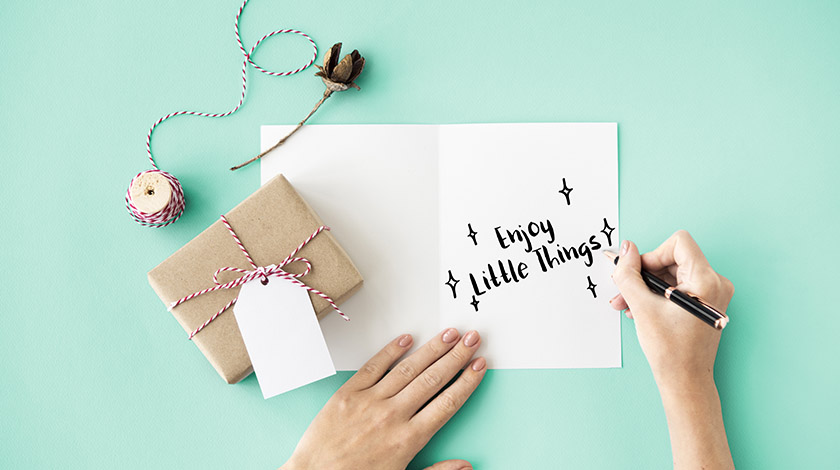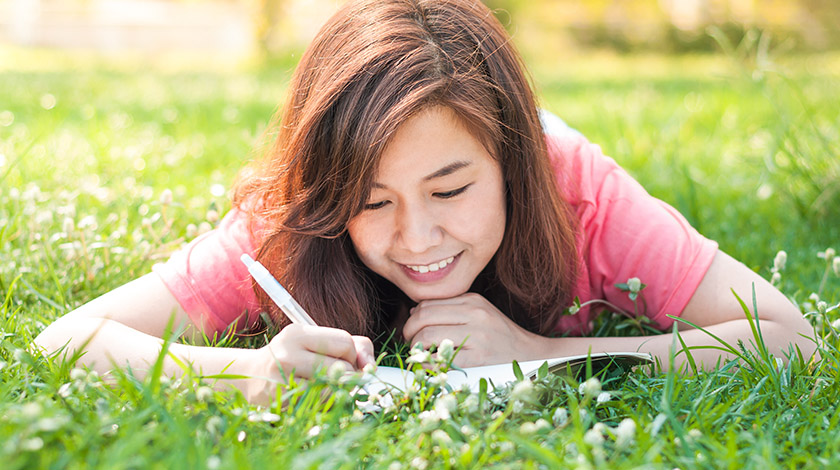When we remember events that made us happy, it’s natural to focus on important milestones — graduations, birthdays, anniversaries and the like. There’s a tendency to overlook the little things. But sometimes, these little things in life can make us just as happy as the big, landmark events. A memory as simple as taking in Hong Kong’s impressive coastline up on Dragon’s Back Ridge, or a family day at Disneyland can fill us with joy and exhilaration as well.
That's why it's important to be grateful for the little things. Researchers have found that people who do so display higher levels of optimism, happiness and sociability!1
Unilateral and bilateral gratitude
It's important to distinguish between unilateral and bilateral gratitude. The former is a gratitude towards no one in particular, and the latter is gratitude towards a particular person. Unilateral gratitude is important to our well-being. We might feel it when we pass by some beautiful scenery, or when the weather outside is just the way we like it.
Bilateral gratitude has a special quality that unilateral gratitude doesn’t possess — it reciprocates. The next time another person goes out of their way to do you a favor, remember to say thank you, and reciprocate with a kind gesture of your own. This creates what psychologists call a “pattern of giving”, encouraging an exchange of kindness and a buildup of positive emotions between you and the other party.
Why be grateful?
The positive psychological effects of gratitude can be observed even in young children. In a research study involving adolescent children, those who expressed gratitude more frequently generally displayed higher levels of mental well-being and optimism.1
Moreover, the benefits aren’t just psychological. We all know that sleep is essential for physical health as restful sleep helps our body repair and restore itself. Well, scientists have discovered that making a list of things that we are grateful for before bed can improve sleep quality and restfulness!2
Finally, recounting an event that we are grateful for can literally provide twice the enjoyment. A study has shown that by recounting a happy event, our mind and body actually experiences those feelings of happiness all over again. The next time you’re feeling downcast and disheartened, try telling a friend, colleague or loved ones about a joyous memory. You might find you feel better instantly.3
You can start by making a list of things that you are grateful for — the company and support of your friends, the talents and skills that you have developed or the opportunities you’ve been given at work. Make it your aim to add to that list every single day, by writing down one thing that day which you feel grateful for. It can be something as simple as a bit of sunshine during Hong Kong’s rainy summer, or a great Korean fried chicken restaurant. Happiness begins with a "thank you".
Sources
- Froh JJ, Sefick WJ, Emmons RA. Counting blessings in early adolescents: An experimental study of gratitude and subjective well-being. Journal of School Psychology 2007; 46: 213-33.
- Wood AM, Joseph S, Lloyd J, Atkins S. Gratitude influences sleep through the mechanism of pre-sleep cognitions. Journal of Psychosomatic Research 2009; 66: 43-8.
- Create joy and satisfaction. Live your life well. Mental Health America. Visited 06 December 2010.
© Cigna Healthcare 2023
Information provided in this article is intended for health and fitness purposes only and is not intended for use in the diagnosis of disease or other conditions, or in the cure, mitigation, treatment or prevention of disease (see Terms & Conditions for details). Any health-related information found in this article is available only for your interest and should not be treated as medical advice. Users should seek any medical advice from a physician, especially before self-diagnosing any ailment or embarking on any new lifestyle or exercise regime. Any information contained in this article may not be suitable, accurate, complete or reliable. Cigna Healthcare accepts no responsibility for the content or accuracy of information contained on external websites or resources, or for the security and safety of using them. "Cigna Healthcare" and the "Tree of Life" logo are registered trademarks of Cigna Intellectual Property, Inc. in the United States and elsewhere, licensed for use. All products and services are provided by or through operating subsidiaries, and not by The Cigna Group.






